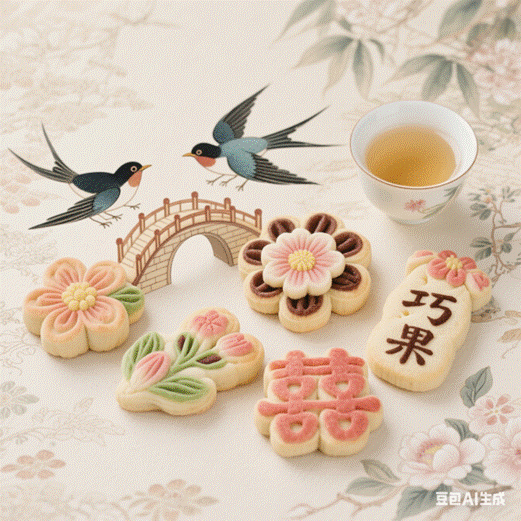
If you’ve heard of China’s romantic festivals, Qixi (pronounced “chee-shee”) is likely on the list. Often called “Chinese Valentine’s Day,” it falls on the 7th day of the 7th lunar month (usually in August). But beyond roses and gifts, this festival carries a 2,000-year-old legend, deep cultural roots, and a mix of traditional and modern charm.
1. The Legend That Started It All: Niulang & Zhinv
Every Qixi story begins with two star-crossed lovers—Niulang, a kind-hearted cowherd, and Zhinv, a celestial weaver girl (granddaughter of the Jade Emperor, ruler of heaven).
Long ago, Niulang lived alone with his old cow. One day, the cow told him a secret: seven fairy maidens (including Zhinv) would bathe in a river nearby. If Niulang took Zhinv’s clothes, she’d stay with him. He did, and the two fell deeply in love, marrying and having two children.
But heaven forbade mortals and immortals from being together. The Jade Emperor was furious and sent Zhinv back to heaven, separating the family with the Milky Way (called the “Silver River” in Chinese mythology).
Moved by their devotion, the Jade Emperor finally relented: once a year, on the 7th day of the 7th lunar month, magpies would fly up to form a “magpie bridge” across the Milky Way, letting Niulang and Zhinv reunite. To this day, people say if you look up at the stars on Qixi night, you can see the two stars (Altair for Niulang, Vega for Zhinv) shining across the Milky Way.
2. Traditional Qixi: Not Just for Lovers
Before it became a “Valentine’s Day,” Qixi was known as the “Daughter’s Festival”—a special day for women.
In ancient China, women focused on honoring Zhinv, the weaver goddess, to pray for two things:
• Skill in weaving and needlework (a key virtue for women at the time). They’d set up tables with thread, needles, and cloth, and compete to thread needles under the moonlight—whoever succeeded was believed to get Zhinv’s blessing.
• Happiness in marriage and family. Families would place fresh fruits (like grapes and melons) under the moon, hoping for a harmonious home and a good match for their daughters.
These customs showed Qixi’s original focus: celebrating female craftsmanship and family blessings, not just romantic love.
3. How Do People Celebrate Qixi Today?
Modern Qixi blends old and new traditions, making it loved by both young and old.
For couples:
• They exchange gifts—flowers, chocolates, jewelry, or handwritten letters (just like Western Valentine’s Day).
• Many plan romantic dates: a candlelit dinner, a walk under the moon, or a short weekend trip. Some even choose Qixi to propose!
For those who want to keep traditions alive:
• In cities like Suzhou and Hangzhou, you’ll still find needlework competitions or “worship Zhinv” ceremonies.
• Families make qiaoguo—fried pastries shaped like bridges (to honor the magpie bridge). These sweet, crispy treats are a classic Qixi snack.
And for everyone:
• Shopping malls and online stores launch Qixi sales (think gift sets, cosmetics, or couple’s items), turning the festival into a small “shopping spree” too!
4. Why Qixi Matters: Its Cultural & Social Impact
Qixi isn’t just a one-day celebration—it’s a part of China’s cultural identity.
Culturally: It preserves ancient myths and values. The story of Niulang and Zhinv teaches loyalty, perseverance, and the power of love—ideas that still resonate today. It also reminds younger generations of China’s rich folklore, so traditions like making qiaoguo or stargazing don’t fade.
Socially: It strengthens bonds. Whether it’s couples reaffirming their love, families gathering for snacks, or friends exchanging small gifts, Qixi is a day to connect with people you care about.
Economically: It boosts businesses. From restaurants to jewelry shops, many industries create Qixi-themed products or discounts, making the festival a little economic boost each year.
Final Thoughts
Qixi Festival is more than a “Chinese Valentine’s Day”—it’s a mix of old stories, sweet traditions, and modern joy. It’s about love (romantic, family, or friendship), heritage, and taking a moment to celebrate what matters.
This year, when Qixi comes, why not try something traditional? Make qiaoguo with your family, stargaze for Niulang and Zhinv, or just tell someone you love them. After all, that’s what the festival is all about.
Happy Qixi! 💫